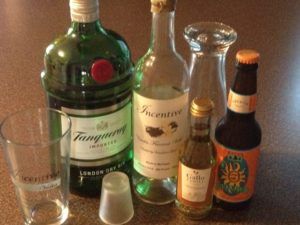
BYCU
I wanted to run this piece last week, but I didn't get a chance: "Best-selling larger beers taste the same, new research finds." Excerpt:
Johan Almenberg and Anna Dreber, researchers from the Stockholm School of Economics, conducted a blind taste test with a selection of three best-selling European lagers: Budvar (also known as Czechvar), Heineken and Stella Artois.
Nearly 140 subjects, aged 21 to 70, received three samples-- two cups had the same product, while the third contained a different brew. Tasters were asked to identify the odd-beer out but they were no better at guessing then if choosing "at random," according to the study, “Hide The Label, Hide The Difference.”
The study came to conclusion that consumers favor certain beers for many factors, taste not included.
“Our results suggest that brand loyalty in this market is likely to be driven largely by marketing and packaging, and not by the underlying sensory properties of the competing products,” says the report.
I find such a study humorous and it feeds the snob in me, but I question taste tests. I can't articulate my reasons, but I've taken taste tests in the past and, when I don't know what I'm drinking, they're really hard, even though they definitely have a different tang or after-taste or whatever. 7-Up or Sprite? Michelob or generic beer (a taste test I took while drunk in college and failed).
I incline to a loose sense that there's a lot more involved in "taste" than actual taste, kinda like there's more involved in reading a book than just reading the book. Have you, for instance, ever tried reading a book when you have NO idea what it's about? I have, and it really sucks. It's hard to get oriented and get a grasp on the book. Does that mean all books are the same to me, or maybe that I don't like to read? Hardly, but my experiment with blind taste-reading would seem to indicate such things.
Just a few random thoughts. Take them for what they're worth.









